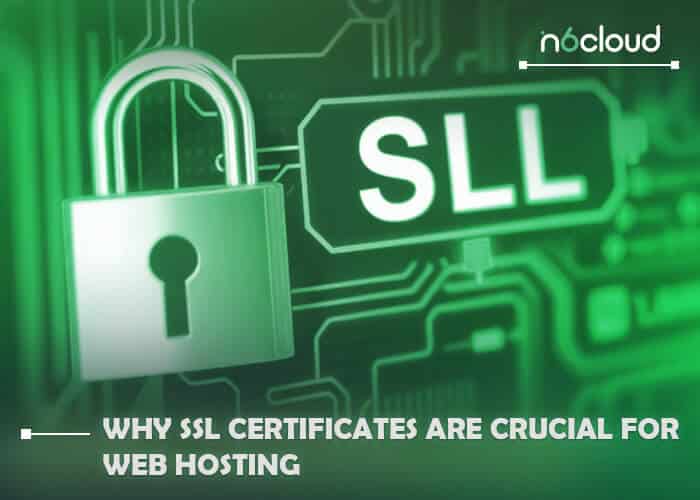website security is a top priority. SSL (Secure Sockets Layer) certificates have become essential for businesses and website owners aiming to build a secure and trustworthy online presence. SSL certificates protect sensitive information, establish credibility, enhance SEO, and foster customer trust.
Introduction to SSL Certificates
SSL (Secure Sockets Layer) is a security protocol designed to encrypt the data shared between a web server and a user’s browser. When a website has an SSL certificate, users see a padlock icon in the browser’s address bar, signaling that their connection is secure. SSL certificates are especially important for websites that handle personal, financial, or login information.
Examples of SSL Use:
- E-commerce Websites: SSL protects payment details during the checkout process.
- Banking Portals: Financial institutions require SSL to safeguard sensitive information.
- Login Pages: Websites with user logins use SSL to secure credentials.
Related:What Is the Use of SSL Certificate And What Does It Do?
The Importance of Website Security
In an era of increasing online threats, SSL certificates have become essential for protecting both users and businesses. With cyber attacks, data breaches, and phishing attempts on the rise, SSL certificates serve as a critical layer of defense. Not only do they protect sensitive information exchanged on a website, but they also enhance credibility, allowing businesses to build trust with their users.

Key Security Benefits of SSL
1. Data Encryption
One of the primary functions of an SSL certificate is data encryption. This encryption works by converting the information shared between the user’s browser and the server into a code that unauthorized parties cannot read. For example, if a customer is entering personal or financial information (such as credit card numbers) on a website, SSL ensures that data remains private. Without SSL, sensitive information could be intercepted and misused by cybercriminals.
2. Authentication
SSL certificates not only encrypt data but also provide website authentication. This process helps users confirm that they are interacting with the legitimate website, protecting them from phishing scams where attackers create fake websites that resemble trusted ones. However, website authentication doesn’t happen automatically; users must manually check the certificate details (such as the issuer, domain name, and validity) to ensure they match the legitimate website. By doing so, users can confidently verify they’re on the correct site, reducing the risk of accidentally sharing sensitive information with fraudulent sites.
Relate: Best Free SSL Hosting Providers
3. Data Integrity
SSL certificates maintain data integrity during transmission, ensuring that information sent between the server and the user’s browser is not altered or corrupted. This means that data cannot be tampered with or intercepted by third parties along the way. For example, when submitting an order on an e-commerce site, SSL prevents any changes to order details or transaction data, maintaining its original form from sender to receiver.
Example Scenario: The Role of SSL in Secure Transactions
Imagine a customer is purchasing a product from an online store and enters their payment information. Without an SSL certificate, their sensitive data, including credit card details and billing information, could be intercepted by hackers. This scenario poses not only a significant financial risk to the customer but also reputational and legal risks for the business if a breach occurs. SSL encrypts the data before it leaves the customer’s browser, making it unreadable to any third parties who might try to intercept it, ensuring the transaction is secure and protected against potential threats.
SSL certificates are more than just a security feature—they are a trust-building tool that protects customers and enhances a business’s credibility. As online security concerns continue to grow, SSL has become essential for any website handling user data, whether for small businesses or large enterprises.

How SSL Certificates Work
SSL certificates secure online communications by encrypting the data exchanged between a user’s browser and a web server. This process ensures that sensitive information—such as passwords, credit card numbers, and personal details—remains private and protected from unauthorized access. The foundation of SSL encryption lies in the use of public and private keys in a process known as asymmetric encryption.
When a user visits a secure website (indicated by https:// in the browser’s address bar), their browser initiates a request to the web server to establish a secure connection. The server responds by sending a copy of its SSL certificate, which contains important details about the website’s identity, including the domain name, the organization behind it, and the certificate’s expiration date. The browser then verifies the authenticity of the certificate by checking it against a list of trusted Certificate Authorities (CAs). These authorities act as intermediaries, ensuring that the website has passed a rigorous validation process and can be trusted.
If the SSL certificate is valid and the server is authenticated, the browser proceeds to establish an encrypted connection. This encryption is made possible through a combination of the server’s public key and the browser’s private key. The public key, embedded in the SSL certificate, is used to encrypt data that only the private key (held securely by the server) can decrypt. Once the connection is established, any data exchanged between the browser and the server is encrypted using this system of keys, making it unreadable to anyone who might intercept the transmission.
This combination of authentication and encryption ensures that the communication between the user and the website is secure. The private key, stored only on the server, ensures that no one else can decrypt the information and access sensitive data. By using public and private keys in tandem, SSL certificates provide a high level of security for websites, allowing users to browse with confidence.
In summary, SSL certificates work by verifying the identity of the website, establishing an encrypted connection using public and private keys, and ensuring that data exchanged between the user and the server remains secure from third-party interception. This entire process is essential for securing online transactions and protecting user privacy on the internet.

Types of SSL Certificates
SSL certificates come in various types, each providing a different level of security and trust for your website. Below are the main types of SSL certificates:
1. Domain Validation (DV) SSL Certificates
Domain Validation SSL certificates offer the most basic level of validation. To obtain a DV certificate, the certificate authority (CA) simply verifies that you own or control the domain you’re requesting a certificate for. This process is quick and automated, often completed within minutes. DV certificates are ideal for blogs, informational websites, or personal sites where encryption is the primary concern, but organization identity is not critical.
Use Case: Blogs, personal websites, informational pages.
Verification: Only domain ownership is validated.

2. Organization Validation (OV) SSL Certificates
Organization Validation SSL certificates provide a higher level of validation than DV certificates. In addition to verifying domain ownership, the certificate authority also checks the legitimacy of the organization requesting the certificate. This process involves validating business registration and other organizational details. OV certificates are ideal for businesses and non-profits, offering trust for users without the high cost of EV certificates.
Use Case: Small businesses, nonprofit organizations, corporate sites.
Verification: Domain ownership and organization details are verified.
3. Extended Validation (EV) SSL Certificates
Extended Validation (EV) certificates provide the highest level of authentication and security. EV certificates require a rigorous verification process where the certificate authority not only confirms domain ownership but also verifies the legal existence of the organization, its physical address, and its operational status.
Use Case: Financial institutions, e-commerce websites, and any site that handles sensitive user data.
Verification: Strict validation of domain ownership and organization credentials.
Note on EV Certificates:
In the past, EV certificates displayed the organization’s name in the browser’s address bar (often shown in green). This was designed to give users a visual indicator of a highly trusted and verified site. However, modern browsers (such as Google Chrome, Mozilla Firefox, and others) have removed the green bar and business name from the address bar, though the certificate still provides the highest level of trust. Users can still verify the organization’s details by clicking the padlock icon in the browser’s address bar and viewing the certificate information.
4. Wildcard SSL Certificates
A Wildcard SSL certificate secures a primary domain and all its subdomains under a single certificate. This is a convenient and cost-effective solution for businesses that have multiple subdomains (e.g., shop.example.com, blog.example.com), as it eliminates the need for purchasing and managing separate certificates for each subdomain.
Use Case: Websites with multiple subdomains (e.g., e-commerce stores, blogs).
Verification: The primary domain is validated, and all subdomains are covered.
Related: SSL Certificate Problem and How To Fix Them?
5. Multi-Domain SSL Certificates (SAN)
A Multi-Domain SSL certificate, also known as a Subject Alternative Name (SAN) certificate, can secure multiple domain names under a single certificate. This is ideal for businesses that manage several domains or brands but want to consolidate their SSL management and costs.
Use Case: Large businesses with multiple domains (e.g., example1.com, example2.com).
Verification: Each domain covered by the certificate is validated.
By choosing the right type of SSL certificate for your website, you can ensure both security and user trust, helping to prevent data breaches and boosting your site’s credibility.

The Impact of SSL on SEO and User Trust
SEO Benefits of SSL
Google has confirmed that SSL is a ranking factor, prioritizing secure (HTTPS) websites in search results. This ranking boost might seem small, but it adds up in competitive industries, where every ranking signal counts. Additionally:
- Enhanced Site Crawling: Search engines find it easier to crawl HTTPS sites, improving overall indexing quality.
- Preserving Referral Data: With HTTPS, referral data remains intact in Google Analytics, providing clear insights into traffic sources.
- Lower Bounce Rates: Secure sites reduce bounce rates since users are less likely to exit due to security concerns, indirectly benefiting SEO.[PS1]

Building User Trust Through SSL
SSL certificates directly impact user trust by providing visible security indicators like the padlock icon in the address bar. This symbol assures users their connection is secure and builds confidence, particularly on e-commerce sites where:
- Conversions Increase: Users are more likely to complete purchases on sites with SSL, as they trust that their payment information is safe.
- Protection Against Phishing: SSL certificates help protect against phishing by authenticating the website. In the past, Extended Validation (EV) certificates displayed the business name directly in the address bar, making it easy to verify the site’s legitimacy. However, most modern browsers no longer display this information. To confirm the authenticity of a site, users now need to manually check the SSL certificate details (such as the issuer, domain name, and validity) by clicking on the padlock icon in the address bar. This ensures that the website is legitimate and reduces the risk of falling victim to phishing attacks.
- Regulatory Compliance: SSL is also a requirement for data protection regulations (e.g., GDPR, PCI-DSS), helping sites avoid legal issues while safeguarding user data.
In summary, SSL enhances SEO performance and user trust, making it a fundamental feature for any secure, high-ranking website.
Conclusion
SSL certificates are vital for any website seeking to create a secure, trustworthy, and SEO-friendly online presence. From data encryption to building user trust, SSL certificates provide essential benefits for both users and website owners. If you’re managing a website, investing in an SSL certificate is a critical step in ensuring safety and credibility.



